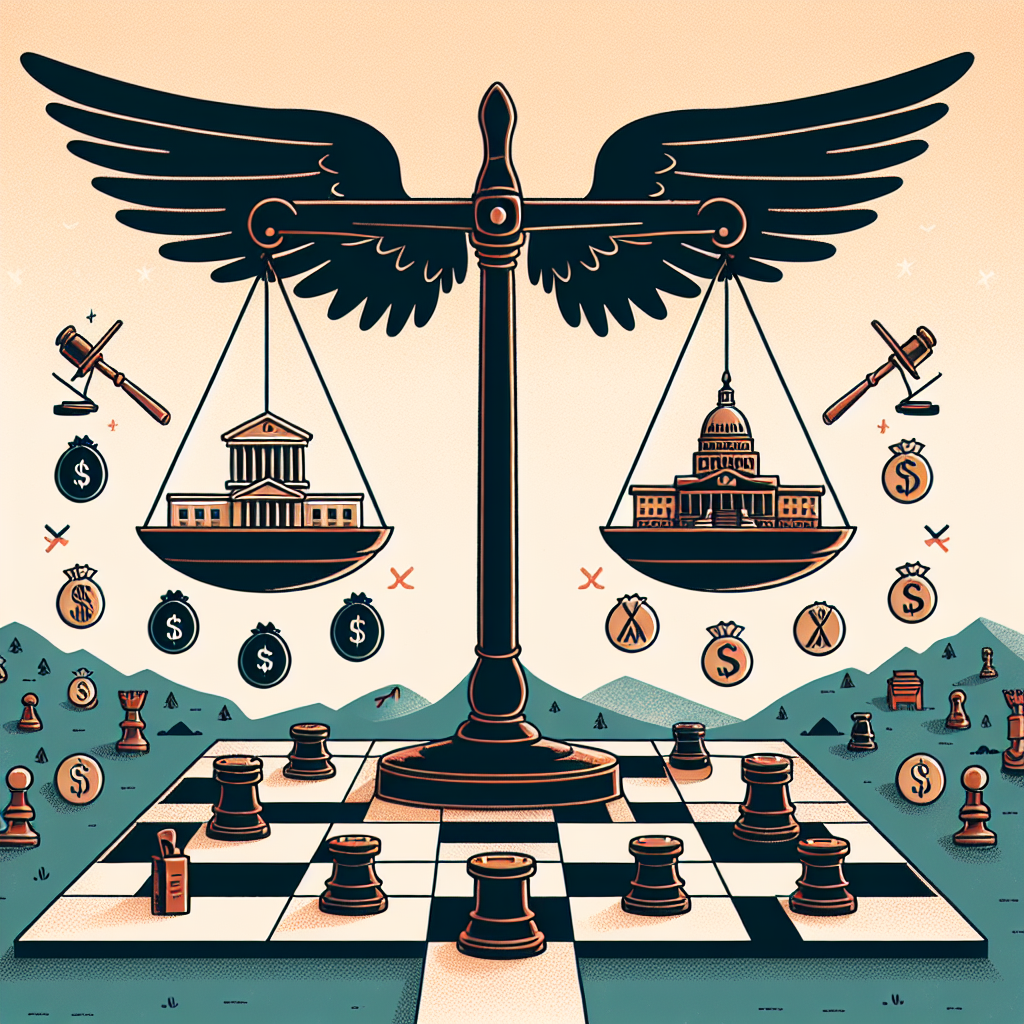The Case for Minimal Government: A Libertarian Perspective on Politics
In an era where governmental reach seems ever-expanding, the argument for minimal government has never been more pertinent. Advocated predominantly by libertarians, this philosophy champions individual freedom, personal responsibility, and a limited state. This article explores the necessity and relevance of minimal government through various lenses and underscores key libertarian perspectives.
Understanding the Libertarian Philosophy
Libertarianism emphasizes the rights of the individual above all else. At its core, it proposes that each person has the inherent right to make choices about their own life, as long as those choices do not infringe upon the rights of others. This belief system advocates for a minimal state, limited primarily to protecting individual rights—life, liberty, and property—while fostering a free-market economy.
The Historical Roots of Minimal Government
The philosophy of minimal government isn’t new; its roots can be traced back to Enlightenment thinkers like John Locke and Thomas Jefferson. These thinkers argued that a government’s primary role should be to protect individual rights rather than impose regulations. This historical context provides a solid foundation for the modern libertarian perspective, arguing that governments often grow in power and control, limiting personal freedoms.
The Benefits of Minimal Government
1. Enhanced Personal Freedom
One of the primary arguments for minimal government is the amplification of personal freedom. When government interference in daily life is minimized, individuals can make choices that best serve their interests, leading to a more diverse and innovative society.
2. Economic Efficiency
Minimal government often leads to a more efficient economy. By reducing regulations and bureaucratic red tape, businesses can operate more freely, resulting in lower prices and more choices for consumers. Free markets foster competition, driving innovation and ensuring that resources are allocated efficiently.
3. Decreased Tax Burden
A smaller government typically means lower taxes. Citizens can retain more of their earnings, allowing them to invest or spend as they see fit. This not only stimulates economic growth but also enhances individual autonomy.
Challenges to Minimal Government
1. The Argument for Regulation
Critics of minimal government argue that some level of regulation is necessary to protect public interest and maintain order. They contend that without oversight, corporations might engage in unethical practices that can harm consumers and the environment.
2. National Security Concerns
Another challenge to the minimal government model is national security. In a world marked by globalization and increasing threats, opponents argue that a stronger government presence is needed to safeguard the nation. However, libertarians counter that national defense can be consistently maintained without expanded governance.
The Role of Non-Governmental Organizations
Libertarians advocate for the role of non-governmental organizations (NGOs) and community initiatives in addressing social issues. By relying on voluntary associations and charitable efforts rather than compulsory government programs, society can address needs more effectively and with greater respect for personal freedoms.
The Modern Relevance of Minimal Government
In today’s climate of polarized politics and growing government intervention, the appeal of minimal government has resurged. Many people are frustrated with inefficiencies in governance and the perceived overreach of regulatory bodies. As technology evolves, the government must adapt by relinquishing control over more aspects of daily life.
The Digital Revolution and Minimal Government
The rise of digital platforms and cryptocurrencies presents a case for minimal government intervention. These technologies operate largely on voluntary, peer-to-peer systems, promoting economic freedom. Libertarians argue that as society becomes more digital, it should also become less reliant on traditional governance structures.
Conclusion: A Path Forward
The case for minimal government rooted in libertarian ideals challenges the traditional perception of government as a necessary evil. By promoting individual freedoms, economic efficiency, and the power of non-governmental organizations, a minimal state can lead to a more prosperous society. As citizens become increasingly aware of the implications of government overreach, the conversation surrounding minimal government is bound to reshape our political landscape. Adopting a libertarian perspective on politics can pave the way for a future where freedom, creativity, and individual responsibility reign supreme.
Call to Action
As we assess the role of government in our lives, it’s imperative to engage in discussions surrounding the potential benefits of minimal government. Individuals can make a difference by advocating for policies that promote personal freedoms and economic growth. Whether through community involvement or by joining libertarian organizations, each of us can contribute to the vision of a society that values minimal government and maximal freedom.
Share this content:












Post Comment